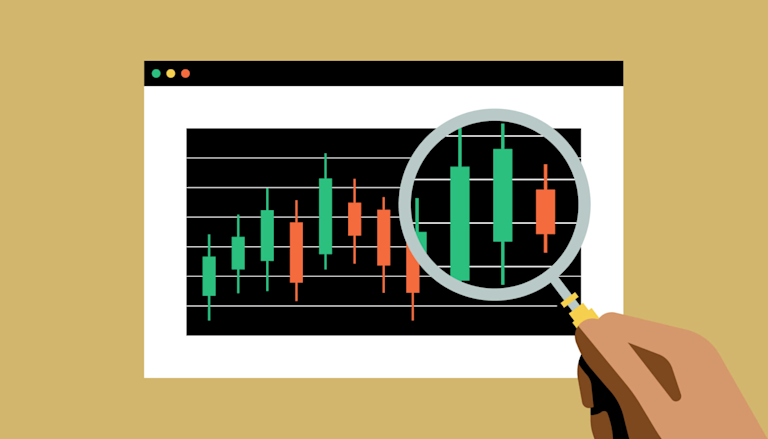Exploring the Future of Crypto Trading AI

Exploring the Future of Crypto Trading AI
The rapid growth of cryptocurrencies has necessitated the development of advanced tools and strategies for trading. One of the most promising areas of innovation in this field is the rise of Crypto Trading AI, which leverages artificial intelligence to automate and enhance trading strategies. These AI systems analyze vast amounts of data at incredible speeds, enabling traders to make informed decisions in real time. As the market becomes increasingly competitive, the role of AI in crypto trading is likely to expand, transforming the way investors operate. By utilizing tools like Crypto Trading AI https://bitcoinethereumnews.com/tech/critique-of-metaverse-and-twitter-lack-of-trust-to-mainstream/, traders can better understand the implications of AI technologies on their trading strategies.
The Evolution of Crypto Trading
Since the inception of Bitcoin in 2009, the cryptocurrency market has experienced unprecedented growth. Initially dominated by individual traders and early adopters, the landscape has transformed into a sophisticated ecosystem that includes institutional investors, hedge funds, and automated trading systems. The immense volatility and rapid price fluctuations characteristic of crypto markets present both opportunities and risks, making the need for advanced trading tools more critical than ever.
Traditional trading strategies, often based on technical analysis and market sentiment, struggle to keep pace with the speed and complexity of modern crypto trading. As a result, traders are turning to AI-based solutions that can process large datasets, identify patterns, and execute trades with minimal human intervention.
How Crypto Trading AI Works
AI in crypto trading typically utilizes machine learning algorithms to analyze historical price data, volume, and other relevant metrics. These algorithms are trained on past market performance to identify patterns that may indicate future price movements. By continuously adapting to new data, AI systems can provide traders with updated insights and recommendations.
There are several approaches to implementing AI in crypto trading, including:

- Predictive Analytics: AI systems use historical data to predict future price movements, providing traders with valuable insights into potential buy or sell signals.
- Sentiment Analysis: AI can analyze social media, news articles, and other online content to gauge market sentiment, which can be a key driver of price action.
- Algorithmic Trading: AI-driven trading bots can execute trades automatically based on predefined criteria set by the trader, reducing the emotional impact of trading decisions.
The Benefits of Using AI in Crypto Trading
The integration of AI into crypto trading offers numerous advantages:
- Speed: AI algorithms can analyze data and execute trades much faster than human traders, allowing for quicker reactions to market changes.
- Data Analysis: AI can process and analyze vast amounts of data in real time, providing traders with insights that would be impossible to obtain manually.
- Emotionless Trading: By relying on data and algorithms, traders can avoid the emotional biases that often lead to poor decision-making.
- Adaptive Learning: AI systems can learn and evolve with the market, continuously improving their predictions and strategies over time.
Challenges and Risks of Crypto Trading AI
While the benefits of Crypto Trading AI are significant, there are also challenges and risks associated with its use:
- Market Volatility: The unpredictable nature of crypto markets can pose challenges for AI systems, which may struggle to adapt to sudden price swings.
- Data Quality: The accuracy of AI predictions depends on the quality of the data used for training. Poor or biased data can lead to inaccurate predictions.
- Overfitting: If an AI model is too closely aligned with historical data, it may not perform well in real-world trading, resulting in significant losses.
- Regulatory Issues: The regulatory landscape for cryptocurrencies is still evolving, and AI-driven trading practices may face scrutiny from regulators.
Future Trends in Crypto Trading AI
The future of Crypto Trading AI looks promising, with several trends likely to shape its development:
- Increased Integration: AI is expected to become more integrated into trading platforms, providing both retail and institutional traders with powerful tools.
- Greater Accessibility: As AI technology becomes more sophisticated and affordable, we can expect wider adoption among individual traders.
- Focus on Security: With increased reliance on AI, there will be a growing emphasis on cybersecurity to protect sensitive trading algorithms and user data.
- Ethical Considerations: The use of AI in trading will raise ethical questions regarding fairness, transparency, and accountability, prompting discussions on best practices.
Conclusion
The integration of Crypto Trading AI presents both significant opportunities and challenges for traders in the fast-evolving world of cryptocurrencies. By harnessing the power of AI, traders can improve their decision-making processes, increase their trading efficiency, and potentially enhance their profitability. However, it is crucial to remain aware of the inherent risks and to approach AI-driven trading with a balanced mindset. As technology continues to advance, the future of Crypto Trading AI holds exciting possibilities for individuals and institutions alike.
